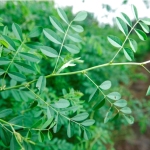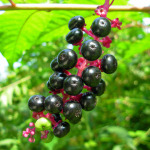Dye Plants – Growing and Making Dyes
If sourcing and making organic dye is something you love to do or are interested in learning, then it can be very satisfying to grow your own dye plants if you have a suitable garden space. However even if room is a problem some plants can even be grown on a balcony or indoors in pots.
By growing the plants and producing your own organic dye you know exactly what is in it and what has been sprayed on the plant and you can ensure that it is indeed an organic dye and that no nasty toxic chemicals have been used. However many dye plants are quite toxic or poisonous themselves and often the mordanting process to enable dye to be colorfast can also use quite dangerous, although natural, chemicals.
Growing dye plants for natural dyeing and extracting dye from them can be a rewarding experience. You don’t even need to have a ‘green thumb’ as most dye plants historically are weeds, which as we all know, grow very well with little attention and often in poor soil conditions.
Growing Dye Plants
Click on the plant to go a page of how to grow and dye with each specific plant. Extracting dye from plants can be very specific to each plant type with some requiring long soaking in ammonia solutions, to others that need to be boiled for hours and then the gentle plants that cannot be overheated or the color will spoil.
Not sure where to get started? Check out my 30 day Natural Dyeing Boot Camp! Try It Now
(This area of the site is constantly being updated so please check back regularly)
Coreopsis

Hibiscus

Japanese Indigo

Madder

Onions

Poke Weed

Queen Anne’s Lace

Red Cabbage
Woad

Coming Soon
Sumac
Black Beans
Avocado
Marigold
Chamomile
Cosmos
Golden Rod
Other sources of organic dye can be found growing naturally in local forest or bushland. Some fungi, bark, leaves, seeds and hulls, all make great organic dyes. However dying with natural products usually require some kind of mordant or fixative to ensure that it does not fade or wash out of the fabric or wool too quickly. Please refer to the page on Mordants and Fixatives on this site for more information.
Not sure where to get started? Check out my 30 day Natural Dyeing Boot Camp! Try It Now